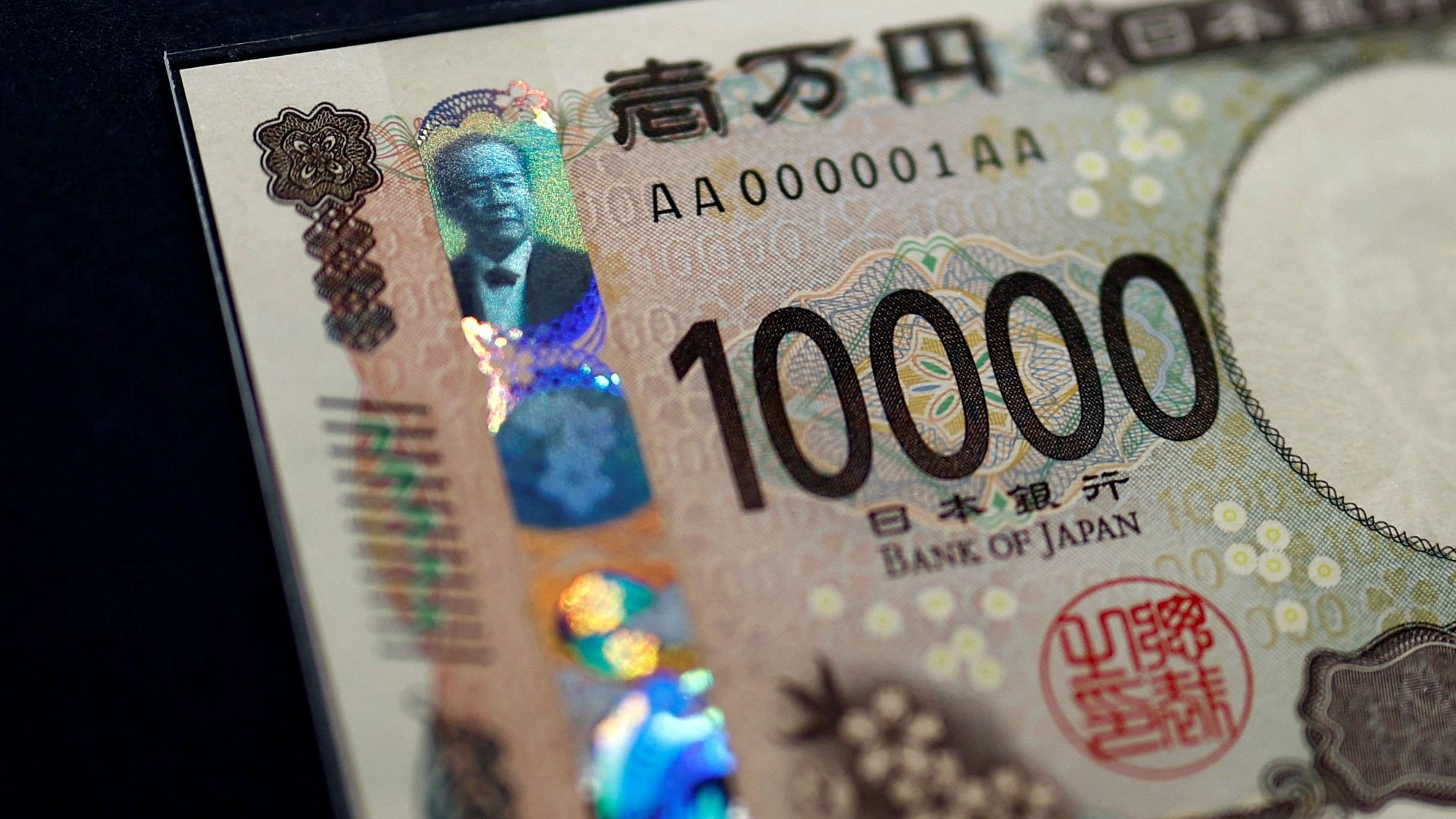
Japanese 10,000 yen banknote.
Credit: Reuters Photo
Tokyo: The yen’s collapse this year to a nearly four-decade low is undermining Japan’s plans for its largest military buildup in postwar history.
The government has slashed orders for aircraft, and officials warn that further cuts may be imminent. Japan buys much of its military equipment from American companies, in transactions done in dollars. The government’s purchasing power has been drastically eroded by the yen’s diminishing value.
“What we are achieving in terms of actual defense capabilities and our original target— the two are not lined up,” Satoshi Morimoto, a former Japanese defense minister, said in an interview. The value of the defense budget over five years “has effectively been reduced by 30 per cent,” Morimoto said.
Japan’s currency headache comes at a critical juncture. The country’s large boost in military spending was intended to fortify defenses as Tokyo confronts mounting missile threats from North Korea and other challenges posed by China, including fears of a potential China-Taiwan conflict.
In 2022, Prime Minister Fumio Kishida of Japan announced a new national security strategy that would more than double the amount set aside for defense. The budget of 43 trillion yen over five years (equivalent to around $319 billion at the time) would help Japan deter attacks by giving it the ability to target bases in enemy territory.
The new budget broke with long-standing precedent on spending restraints and dependence on US forces. Kishida hailed the surge in military spending as a “turning point” in Japan’s history.
The problem: The budget was based on an exchange rate of 108 yen to the dollar, which even then was far from the actual rate of around 135 yen to the dollar. Now, with the yen weakening to 161 to the dollar, the cost of equipment including helicopters, submarines and tanks has skyrocketed.
Historically, a weak yen helped Japan’s big exporters like Toyota Motor by making their products cheaper and more competitive overseas. But it makes imports more expensive. The government’s struggle to afford military equipment is one example of how those higher costs are squeezing Japan’s economy. The slide in the yen’s value over the past three years has raised the price of staples like food and fuel and weighed on household spending.
Recently, the Bank of Japan, the central bank, has become more concerned about the yen’s impact on import prices. Many market analysts and traders expect the bank to raise interest rates this year, possibly as soon as this month. Higher interest rates draw more investors to Japanese assets, increasing demand for the yen and propping up the currency’s value.
“I am seriously concerned about this defense-budget issue, and especially the effect that the weak yen will have on dealing with North Korean and potential Chinese threats,” said Maiko Takeuchi, a consulting fellow at Japan’s Research Institute of Economy, Trade and Industry.
Several technologies central to Japan’s ability to conduct counter strikes— including US-made Tomahawk missiles— have surged in price because of the weakened yen, according to Takeuchi, who previously worked in a government agency that oversaw military purchases.
“At this point, even Japan-made military equipment is going up in price because many internal parts are sourced from overseas,” Takeuchi said. “Japan is already cutting procurement of certain aircraft, and if you can’t increase the budget, more cuts become inevitable,” she added.
When it was first announced, Japan’s five-year military budget was seen by security experts as a powerful statement: The officially pacifist country was demonstrating its resolve to the United States and other allies rattled by China’s recent military buildup and other territorial threats.
As China builds closer economic and military ties with Russia, other Asia-Pacific nations have also been increasing their military budgets. For Japan, the budget drawn up two years ago would put defense spending at about 2 per cent of the country’s economic output in 2027, aligning with a target laid out by NATO.
“Japan’s defense plan was a bold statement,” said Jonathan Grady, founding principal of the advisory firm Canary Group, who has counseled the Japanese government on strategies related to funding defense spending. “The challenge now lies in honoring that commitment,” he said. “Japan risks credibility right now if it can’t do it.”
Kishida faces limited options for funding a bigger defense budget. Japan’s public debt is more than twice the size of its economic output, and tax increases have historically been both unpopular and damaging to its economy.
Funding for the defense budget was tied in 2022 to vague plans to raise taxes at “an appropriate time in or after 2024,” according to Cabinet office documents. That tax increase has already been punted beyond this year, and any further increases would probably be a hard sell for Kishida, who is already reckoning with record low approval ratings.
This week, Kishida is set to attend a NATO meeting in Washington marking 75 years since the alliance’s founding. NATO officials have said the summit will focus on boosting allied defense and strengthening partnerships in the Indo-Pacific region.
“If you can’t raise taxes and can’t increase debt, you’re stuck with very few options beyond pursuing deeper multilateral coordination,” Grady said, referring to Japan’s collaboration with the United States, Australia and other allies on initiatives like joint maritime exercises and trainings.